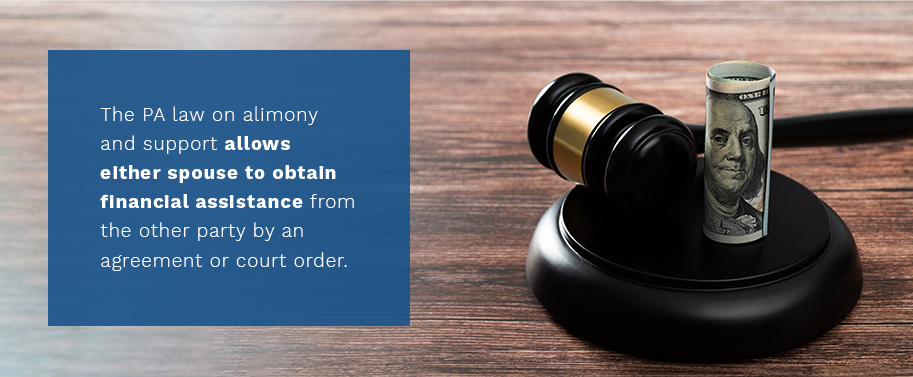
Pennsylvania divorce laws can be confusing, so we have prepared this simple guide to help you understand the most important things. This is crucial because divorce and related issues can significantly impact so many people’s lives. While ending a marriage may be the most appropriate decision for you, it helps to go through the proper channels to protect yourself, your children and your property. This article will offer some necessary information before you consult an experienced attorney.
The parties in divorce proceedings in PA are called plaintiff and defendant:
Contrary to common belief, there is no legal advantage to being the plaintiff in a divorce action; the divorce has to be filed by someone, and the other party is then the defendant.
A party can file for divorce in Pennsylvania when they meet certain residency requirements. Specifically, one or both spouses must have lived in the state for at least six months before filing for divorce. Divorces are filed in the Prothonotary’s office of a county Court of Common Pleas. A spouse may file for divorce in the county where:
A plaintiff who files for divorce must give justifiable reasons or “grounds” for ending the marriage. The grounds for divorce in PA are generally categorized as no-fault or fault based. Usually, most divorces are filed as no-fault, which means that the marriage is irretrievably broken and neither party is specifically at fault for the break-up of the marriage.
No-fault divorces are not based on specific misconduct or wrongdoing by any spouse and may be obtained in the following ways:
A no-fault ground for divorce in PA includes a situation where the marriage irretrievable breaks down and the couple agrees to end their marriage. In this case, to obtain the divorce, the couple must wait 90 days after starting the divorce and, provided the economic issues are resolved after the 90 days expire, each party files an affidavit that they consent to the divorce and the divorce may be granted.
If one spouse does not want the divorce and will not consent to it, the other spouse may move the divorce to conclusion after the parties have been separated for a year or more.
Fault-based divorces require you to prove some form of marital misconduct or wrongdoing on the part of your spouse, which has led to the breakdown of the marriage. Under PA divorce laws, there are six grounds for at-fault divorces. These are:
It is not as common to file fault-based divorces anymore; however, if you believe you have grounds for divorce based on one of the six fault grounds under the Divorce Code, you should discuss it more thoroughly with an experienced family law attorney.
It is important to clarify that there is no “legal separation” in PA. If one party moves out, the parties are considered separated. Parties can be separated while living in the same household; however, there are specific facts that the court will look at to consider whether there is an actual separation or not. The date of separation is important in property division; therefore, if you think you have been separated while living in the same household, discuss it with an experienced family law attorney to ensure that is the case.
The PA law on alimony and support may allow either spouse to obtain financial assistance from the other party. Pending the conclusion of the divorce matter, the lower earning spouse may file to receive spousal support from the higher earning spouse. Spousal support is calculated by Domestic Relations based upon the parties’ respective income.
If the spouse filing for support is determined to be at fault for the breakup of the marriage, that spouse can, alternatively, seek alimony pendente lite, which is Latin for alimony pending the litigation of the divorce matter. Alimony pendente lite, or “APL”, is calculated the same way that spousal support is calculated.
Unlike spousal support and APL, alimony is not automatic in PA, nor is it calculated the same. Alimony is based upon the need of one spouse and the other spouse’s ability to pay. The amount and the duration of alimony is strictly up to the court. If the parties cannot agree on alimony, the court considers factors to determine if a spouse should be awarded alimony, after the divorce. Some of the factors considered are the duration of the marriage, earning capacity of each spouse, income sources, age, health and assets and liabilities.

If the parties cannot agree on dividing their property, either party may ask the court to divide it. Marital property can include, but is not limited to, real estate, vehicles, cash in bank accounts, retirement accounts and investments. However, there are some exclusions to marital property, such as:
There are some distinctions with excluded property that can make a portion of it marital. If you have property that falls under a category above, you should discuss that with an experienced family law attorney.
Pennsylvania is an equitable distribution state. This means the court seeks to distribute marital assets fairly and equitably, not necessarily exactly equally. Pennsylvania is not an automatic 50-50 state or community property state. If the parties cannot agree on dividing their property, the court will consider several factors before doing so, including, but not limited to, the following:
If couples want to avoid duking it out in court, there are alternative resolution options available. Specifically, spouses can elect to go to mediation or handle their divorce through the Collaborative Process.
If couples have a general idea of how they want to divide their property but may be stuck on a few issues, they can elect to utilize a trained family law mediator to help them facilitate discussion and negotiation to come to a final agreement. Our family law attorneys at Johnson Duffie are trained mediators and available to answer questions about mediation.
Another option to divorcing couples is the Collaborative Process. The Collaborative Process is a resolution focused alternative where the parties, and their collaboratively trained attorneys, agree to settle their family law issues rather than go to court. The Collaborative Process offers privacy and allows the parties to maintain control rather than letting a judge make decisions about their personal matters. It is a respectful way to approach a divorce, particularly when there are children involved. Our family law attorneys at Johnson Duffie are collaboratively trained and available to answer questions about this process.
Here are answers to some of the frequently asked questions:
You may file for a divorce even if your spouse refuses to consent. Once you establish that you and your spouse have lived separate and apart for more than a year, the divorce may move forward through the court process even if your spouse continues to object to the divorce.
Generally, marital property includes all property, assets or debts, acquired during the marriage. It also includes increases in the value of nonmarital assets. Marital property may include real property, cash, vehicles, trusts, retirement, stock options, life insurance and debt.
Partnering with an attorney to handle your divorce is not required but is a very good idea. A family law attorney can help you navigate the process, whether it is through the court or using alternative dispute options. In addition, family law attorneys can help you negotiate divorce-related matters such as alimony, child support, child custody and property distribution or advocate on your behalf in court, if necessary.
Johnson Duffie is a Harrisburg-based law firm specializing in family law. We support spouses facing marital challenges by helping them secure divorces or handle other related hurdles, such as child custody and support matters. Our attorneys practice in almost all of the counties surrounding the Harrisburg area. Our experienced attorneys will handle your case in a confidential and professional manner. Contact us now to learn more!